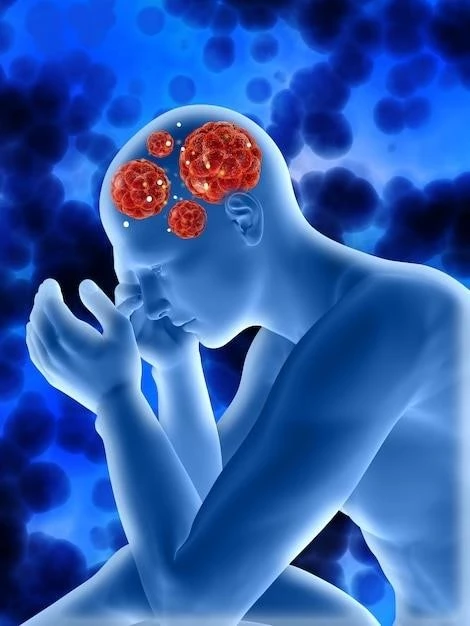Dysautonomia ⎻ Understanding Dysfunction in the Autonomic Nervous System
Dysautonomia is a disorder affecting the autonomic nervous system․ This article covers symptoms like blood pressure and heart rate fluctuations, fatigue, dizziness, fainting, nausea, sweating, vibration, digestion, sleep disturbances, anxiety, and depression․
Introduction
Dysautonomia is a complex medical condition that results from dysfunction in the autonomic nervous system․ This crucial system regulates involuntary bodily functions such as heart rate, blood pressure, digestion, and temperature control․ When this system malfunctions, it can lead to a wide array of symptoms affecting various bodily processes․ Understanding dysautonomia is essential for proper diagnosis, treatment, and management of the condition․ Let’s explore the key aspects of dysautonomia, including its symptoms, diagnosis, treatment options, research advancements, and the impact it can have on individuals’ daily lives․
Symptoms of Dysautonomia
Dysautonomia presents a range of symptoms due to autonomic nervous system dysfunction․ Common symptoms include fluctuations in blood pressure and heart rate, fatigue, dizziness, fainting, nausea, abnormal sweating, vibration sensations, digestive issues, sleep disturbances, as well as feelings of anxiety and depression․ Each individual may experience a unique combination and severity of symptoms, impacting their daily life and overall well-being․
Diagnosis of Dysautonomia
Diagnosing dysautonomia can be challenging due to the complexity of its symptoms․ Healthcare providers use various tests to assess autonomic function, such as tilt table testing, autonomic function tests, heart rate monitoring, and blood pressure measurements․ Additionally, medical history evaluation, symptom tracking, and ruling out other conditions are crucial steps in reaching an accurate diagnosis․ Collaborating with specialists in neurology, cardiology, or autonomic disorders can aid in confirming dysautonomia and developing a personalized treatment plan․
Treatment Options for Dysautonomia
The management of dysautonomia focuses on alleviating symptoms and improving quality of life․ Treatment approaches include lifestyle modifications like increased salt and fluid intake, wearing compression garments, and implementing gradual physical activity․ Medications targeting specific symptoms such as blood pressure fluctuations, heart rate control, and gastrointestinal issues are prescribed․ Physical therapy, dietary adjustments, counseling for anxiety and depression, and complementary therapies like acupuncture may also be part of a comprehensive treatment plan tailored to the individual’s needs․

Research on Dysautonomia
Ongoing research on dysautonomia aims to deepen understanding of the underlying mechanisms, improve diagnostic tools, and develop more effective treatments․ Studies explore the genetic, environmental, and autoimmune factors contributing to dysautonomia․ Advanced imaging techniques, biomarker research, and clinical trials play key roles in advancing knowledge and enhancing outcomes for individuals with dysautonomia․ Collaboration between researchers, healthcare professionals, and patients is vital in driving progress in the field of autonomic nervous system disorders․
Chronic Illness Impact
Dysautonomia as a chronic illness can have a profound impact on daily life․ The fluctuating nature of symptoms such as fatigue, dizziness, and gastrointestinal issues can lead to challenges in work, relationships, and social activities․ Managing a chronic condition like dysautonomia requires adaptability, patience, and a supportive healthcare team․ Individuals may face physical limitations, emotional distress, and lifestyle adjustments, highlighting the importance of holistic care, self-care strategies, and mental health support to cope with the long-term effects of dysautonomia․
Management of Dysautonomia
Effective management of dysautonomia involves a multi-faceted approach aimed at symptom control and improving quality of life․ Lifestyle modifications including adequate hydration, salt intake, and regular exercise can help regulate autonomic functions․ Medications targeting specific symptoms like blood pressure and heart rate fluctuations are prescribed based on individual needs․ Implementing strategies to prevent orthostatic intolerance, such as gradual changes in posture, is crucial․ Psychological support, stress management techniques, and regular follow-ups with healthcare providers are essential components of a comprehensive management plan for dysautonomia․
Healthcare Support for Dysautonomia Patients
Healthcare support for dysautonomia patients is essential for optimal management of the condition․ Collaborating with a multidisciplinary team of specialists such as neurologists, cardiologists, and autonomic experts can provide comprehensive care․ Regular monitoring of symptoms, medication adjustments, and lifestyle recommendations are crucial aspects of healthcare support․ Patient education on self-management strategies, symptom recognition, and resources for support groups can empower individuals with dysautonomia to navigate their health journey effectively․ Open communication with healthcare providers facilitates personalized care and better outcomes for patients dealing with dysautonomia․
Orthostatic Intolerance and Dysautonomia
Orthostatic intolerance, a common feature of dysautonomia, refers to the body’s inability to regulate blood pressure and heart rate effectively when changing position from sitting or lying down to standing․ This can lead to symptoms like dizziness, lightheadedness, and fainting․ Management strategies for orthostatic intolerance include increasing fluid and salt intake, wearing compression stockings, and performing gradual exercises to improve cardiovascular fitness․ Understanding the link between orthostatic intolerance and dysautonomia is crucial in developing tailored treatment plans to enhance daily functioning and reduce symptoms for individuals with this condition․
